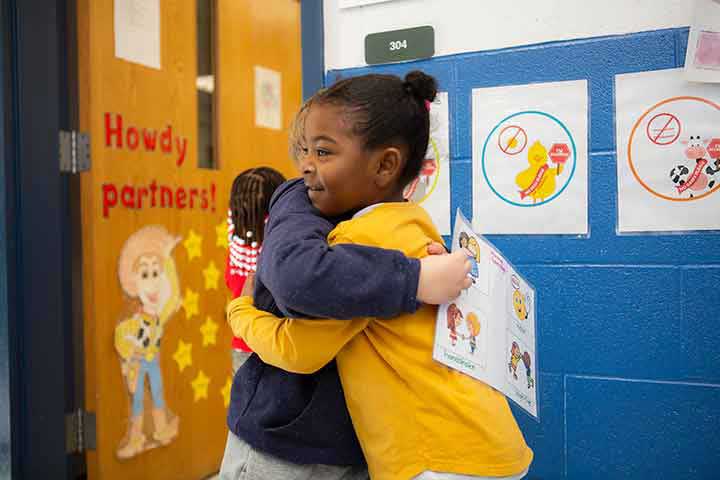The Child Behavior Rating Scale (CBRS)
Assessing Self-Regulation, Social Skills, and Mental Health Well-Being
Teacher Reports on Self-Regulation, Social Skills, and Mental Health Well-Being
The Child Behavior Rating Scale (CBRS) is a teacher-reported measure of a student’s behavior with other children and adults, as well as their engagement with materials and tasks in the classroom.
A Brief Overview
VKRP uses the Child Behavior Rating Scale (CBRS), a short rating scale, that teachers complete to report on two areas of a student’s social-emotional skills (self-regulation and social skills).
Self-regulation is made up of the skills needed to direct attention, work through emotions, and manage behaviors to adapt to the demands of the school environment. Examples include listening to others, following expectations and multi-step directions, and staying focused on tasks.
Social skills include the ability to navigate interactions and to build relationships with peers and adults. Examples include cooperating in a group, expressing thoughts and emotions, and resolving conflicts in a positive way. VKRP uses the CBRS to capture teachers’ perceptions of these two skills because it’s reliable and valid across culturally diverse contexts.
VKRP’s Mental Health Well-being Items measure the teachers’ perceptions of students’ mental health well-being.

CBRS at a Glance
The Logistics
Takes approximately one to three minutes to complete per child and is completed in both the fall and spring of each year with an optional mid-year timepoint. Completed by the teacher outside of instructional time and is based on the teacher's perceptions/observations of the student’s behavior across settings with other students, adults, and tasks.
The CBRS Items
Includes a set of 17 items that teachers report on with a rating scale from 1 to 5 depending on how often a teacher perceives that a behavior occurs. Ten items are associated with self-regulation, and seven items are associated with social skill development.
Mental Health Well-Being Items
Teachers also report on five items that focus on students' mental health well-being (e.g., appears anxious), as well as a single item that captures the teacher's overall level of concern for each student's social-emotional well-being.

